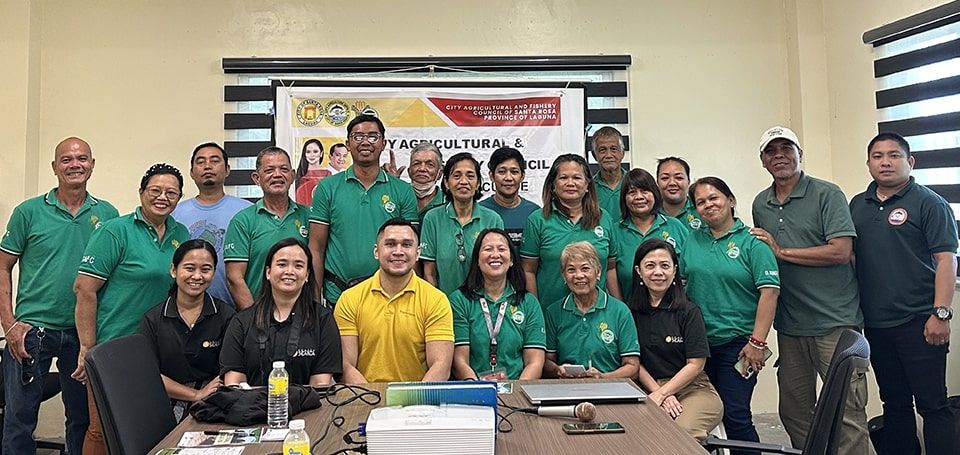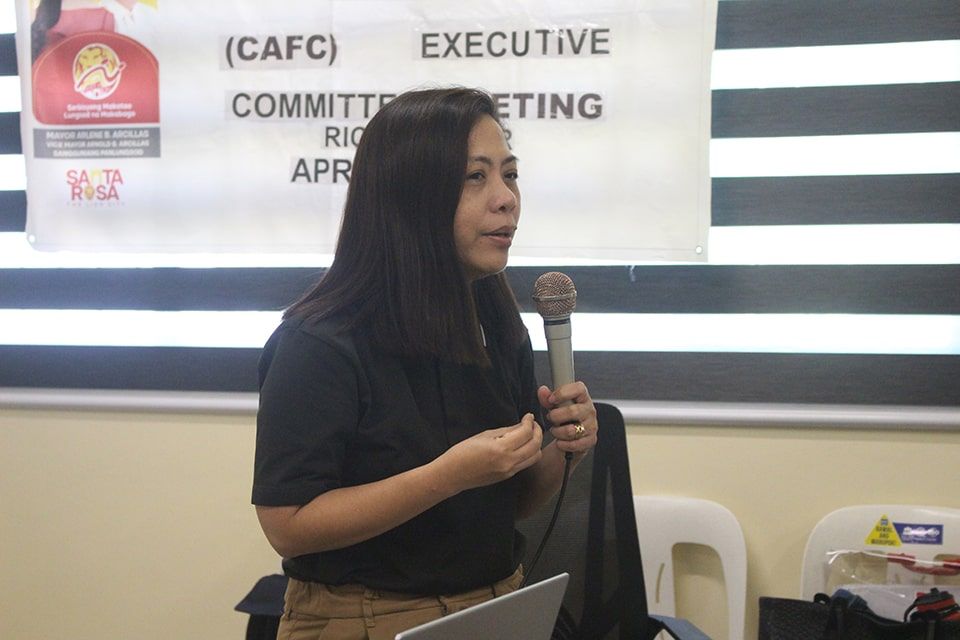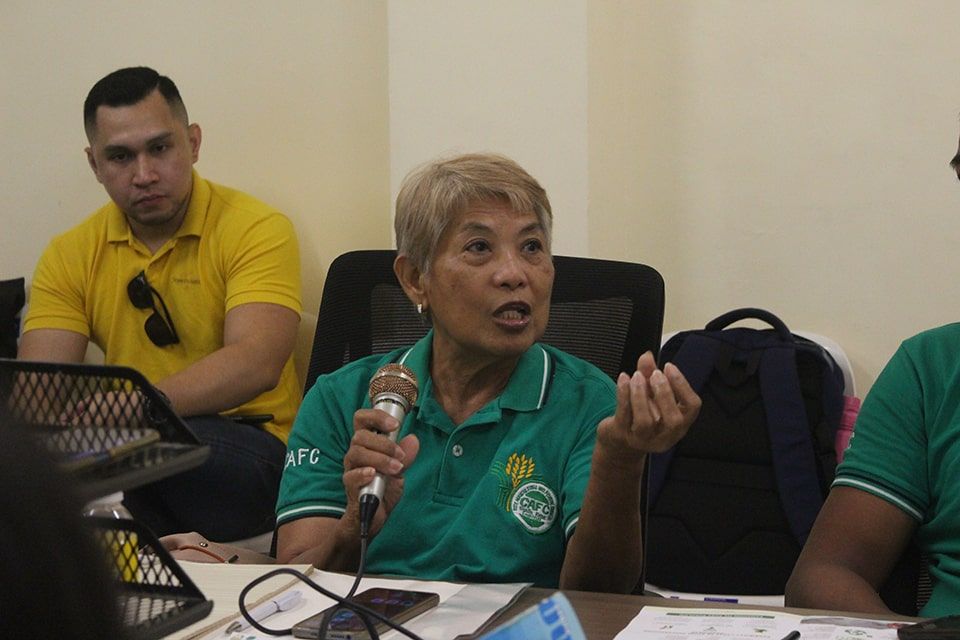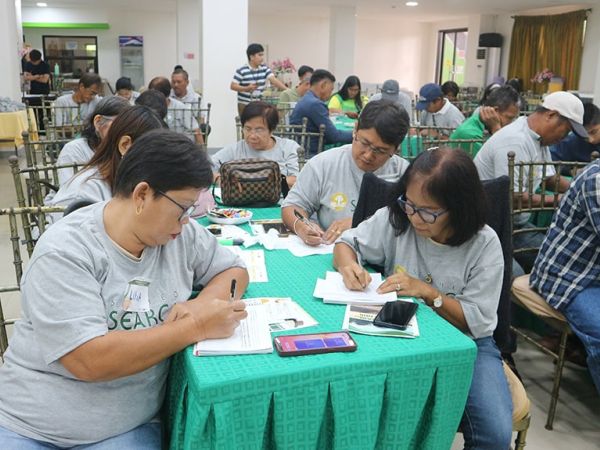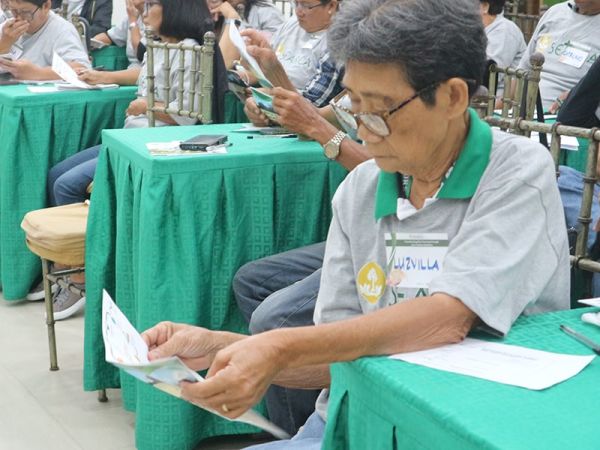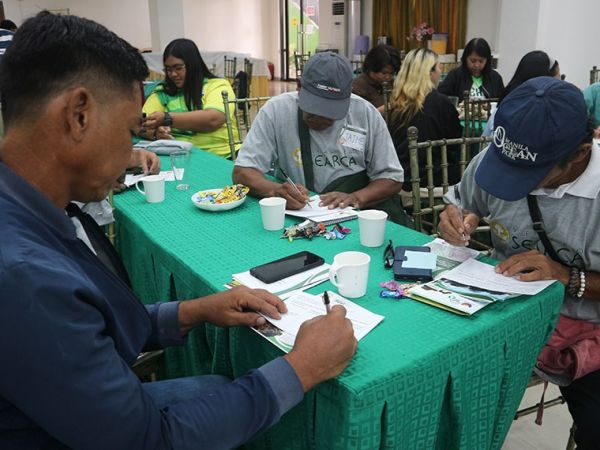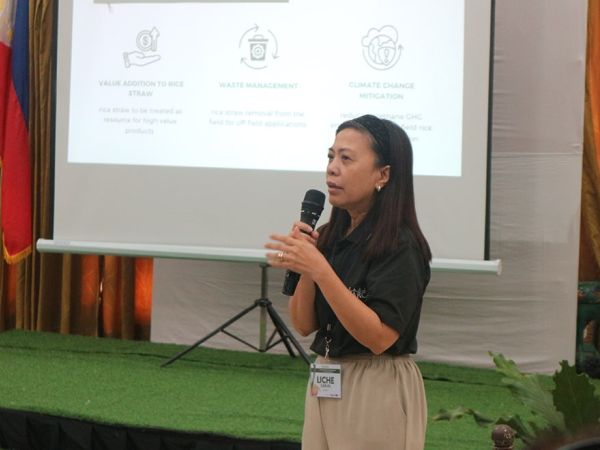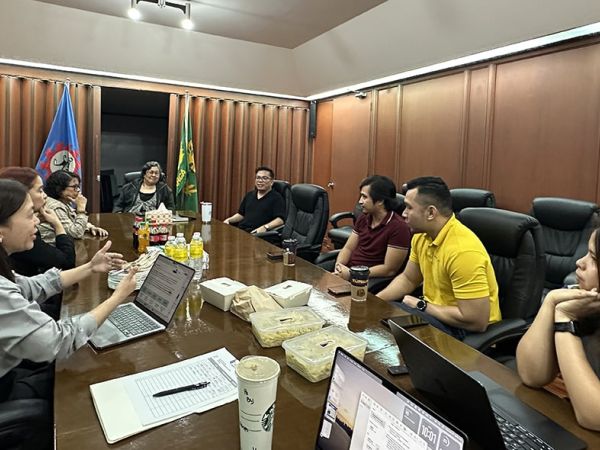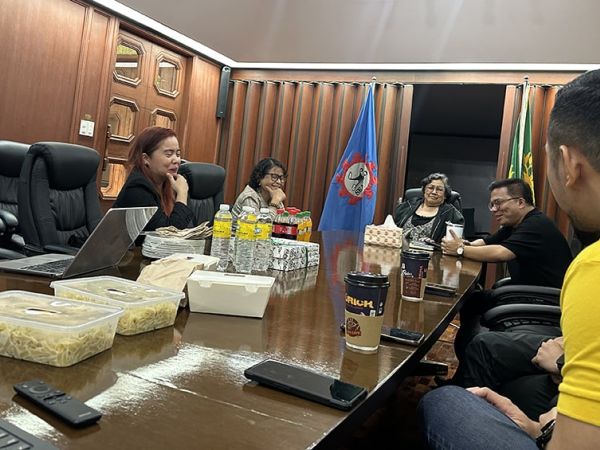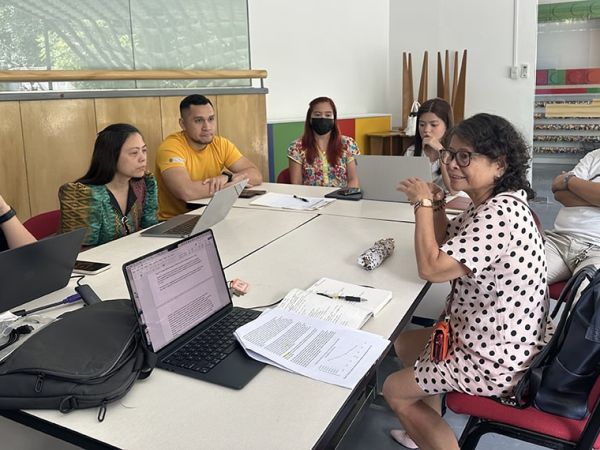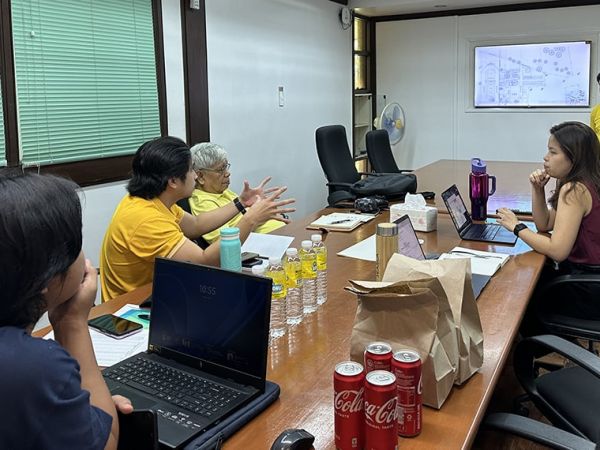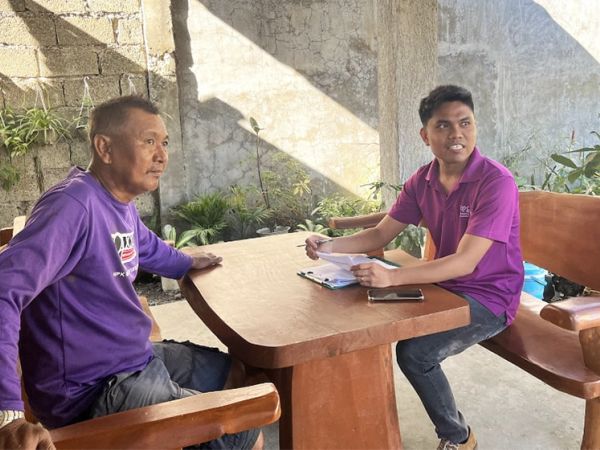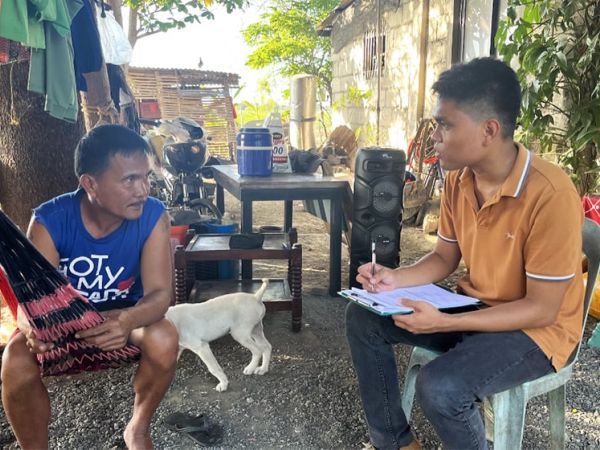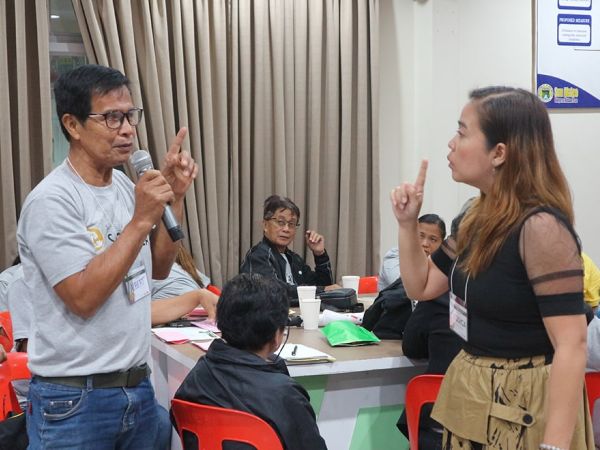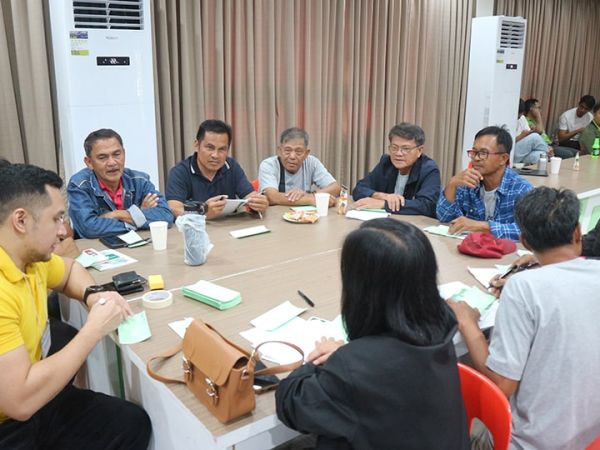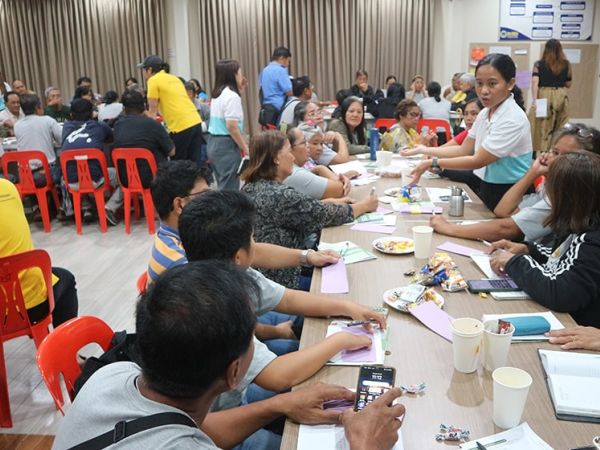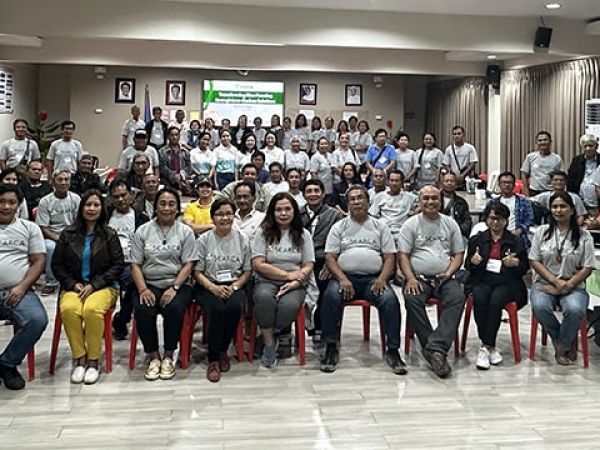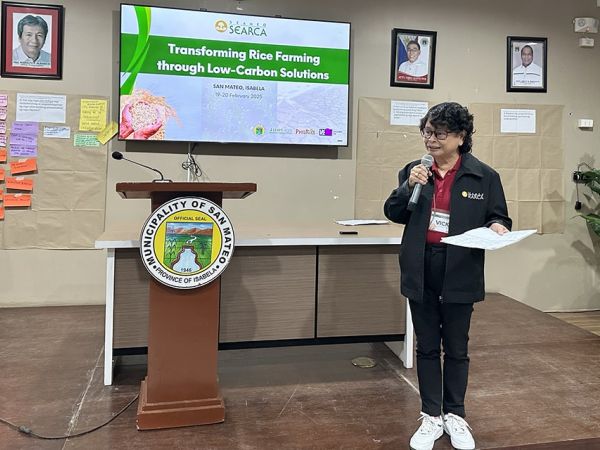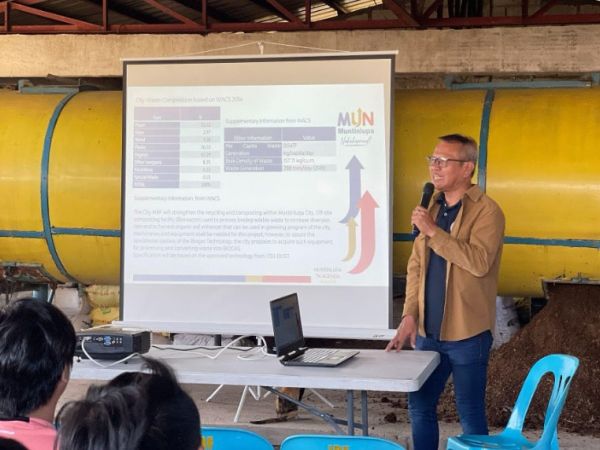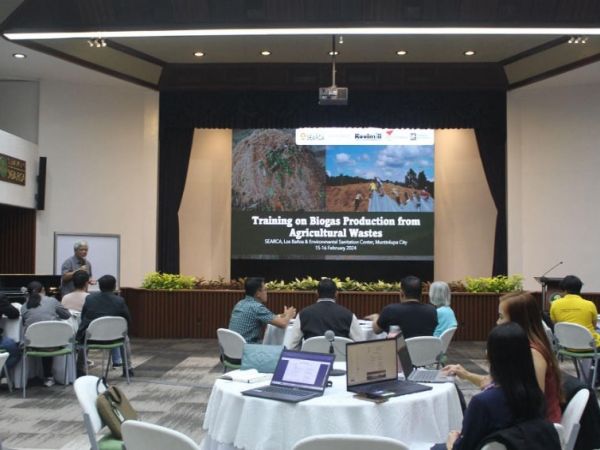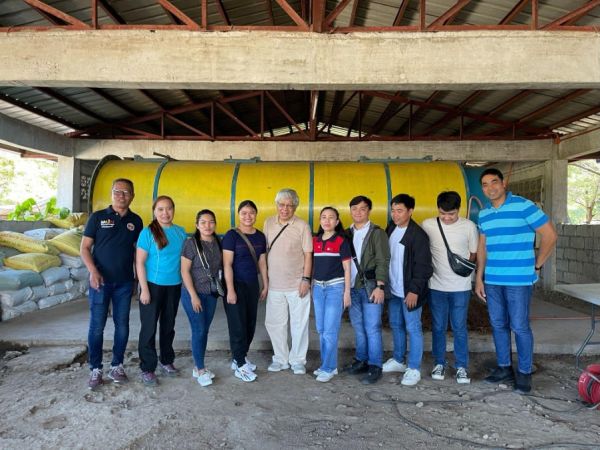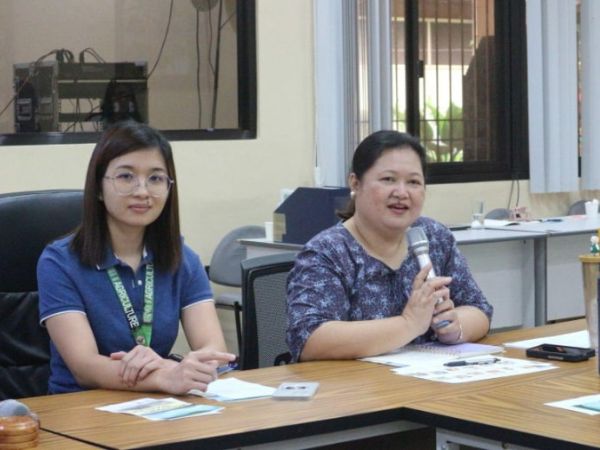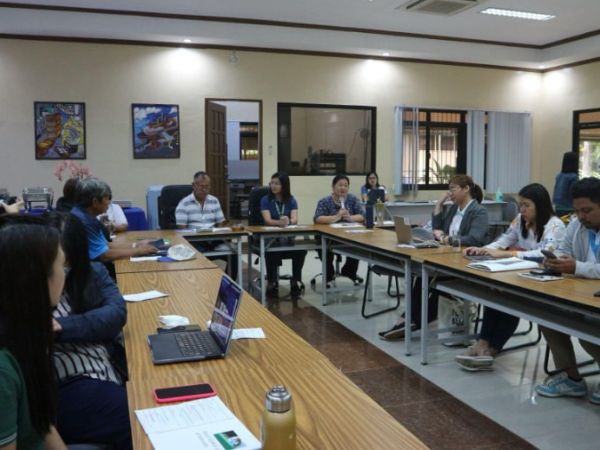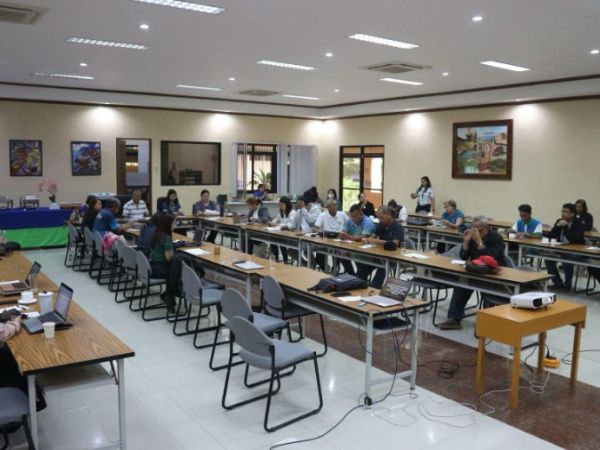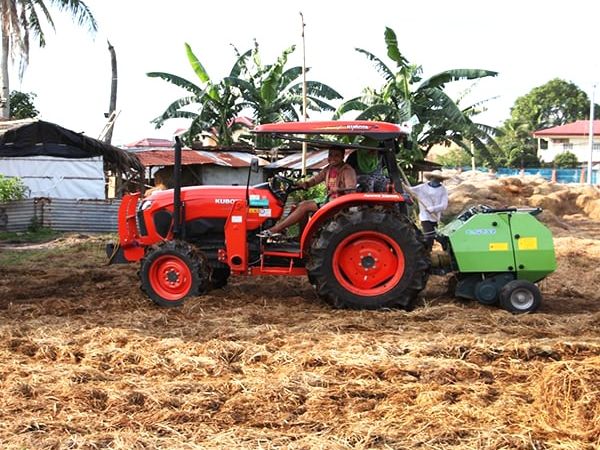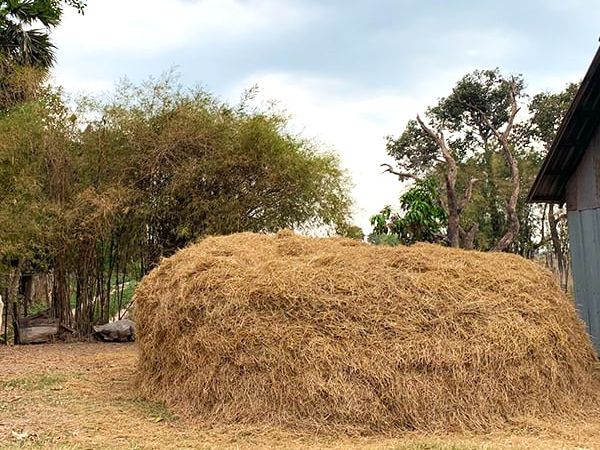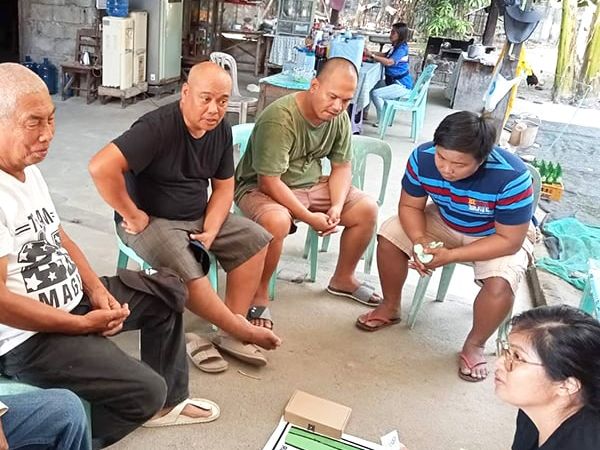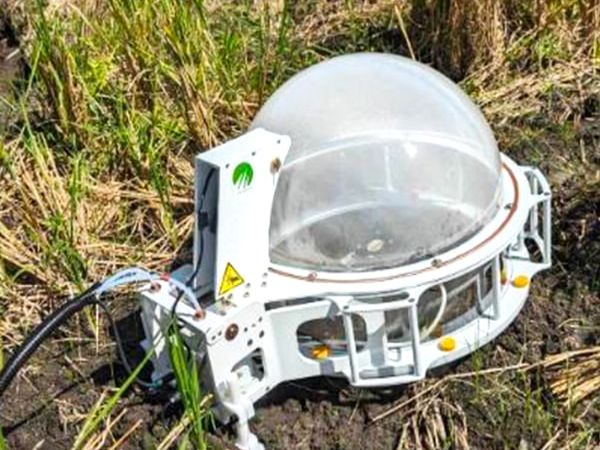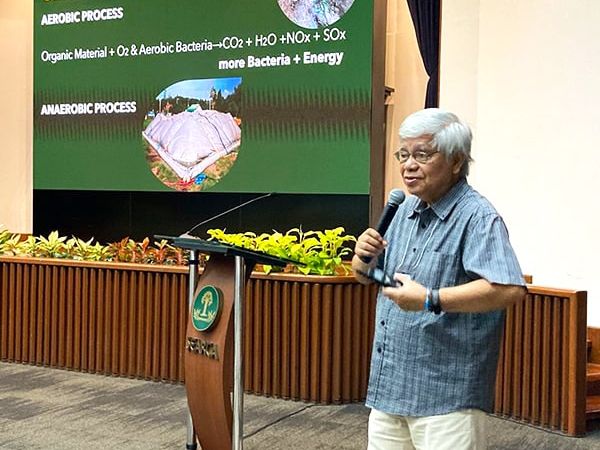Work Package 6
Fostering a climate-resilient environment through sustainable rice straw management practices
Latest update (July 2025)
Promotion of low carbon rice farming
Over the past few weeks, the team has been actively engaged in various activities promoting sustainable rice straw management. In April, the SEARCA-RSBH delegation participated in the City Agricultural and Fisheries Council (CAFC) Executive Meeting in Sta. Rosa, Laguna. The meeting focused on discussing proper handling of rice straw, particularly in light of the intensified enforcement of the Philippine Clean Air Act, which prohibits the open burning of rice straw and other agricultural waste.
SEARCA team surveys members' rice straw handling practices and shares the project's vision for sustainable management and a circular economy.
Straw Innovations also took part in the meeting, presenting their business model and showcasing capabilities of their Straw tractors to CAFC members. In addition to offering sustainable management solutions, the team highlighted potential market opportunities available to farmers who adopt these practices. In this meeting, the farmers expressed their positive inclination towards adopting innovative technologies and practices that would aid them physically and economically.
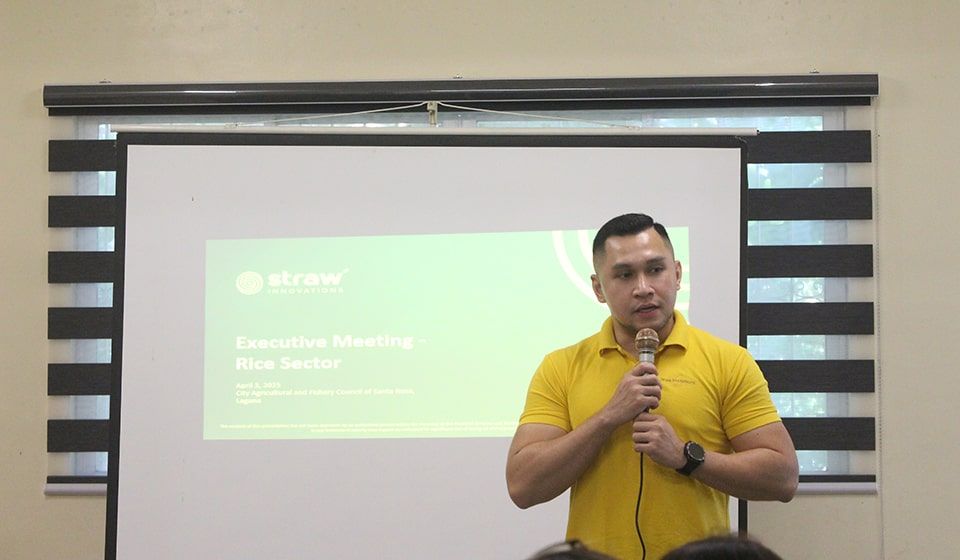
Mr. Jay-Rness Ceria, Straw Innovations Ltd.'s Brand and Marketing Manager, shares the business model of the company, and their machineries could enhance the post-harvest experience of rice farmers.
In June, the team co-organized a low-carbon farming initiative titled "Transforming Rice Farming through Low Carbon Solutions" with key stakeholders from the rice sector in Sta. Maria, Laguna. The event served as a platform to gather insights from participants through a brief survey, focusing on their views regarding the benefits and challenges of continued rice straw burning, incorporation, and removal. Initial findings indicate that rice straw burning remains one of the most convenient methods for farmers to dispose of agricultural waste in preparation for the next planting season.
A brief survey was conducted among farmers to determine their viewpoints on the pros and cons of various rice straw management practices.
Proposal to boost environmental of RSM to stakeholders
Led by Dr. Espaldon, the WP6 team is currently preparing a proposal aimed at strengthening the adoption of sustainable rice straw management practices. They are also putting together a concise report detailing greenhouse gas emissions and the anticipated reductions from the proposed mitigation measures, aligning with the country's nationally determined contributions. In addition, the team is set to participate in several stakeholder engagements and conferences to emphasize the importance of sustainable rice straw management.
A series of consultative meetings to refine and present policy recommendations on sustainable rice straw management practices.
Graduate student report
Meanwhile, a report on GIS-based validation data is currently underway. It aims to triangulate reports of rice straw burning using satellite imagery for visualization. To complement this, a series of key informant interviews was conducted with residents in selected provinces, specifically Laguna and Nueva Ecija.
May 2025 update
Remote Sensing Study
Jefferson Rapisura, graduate study researcher, conducted a validation survey (~70 respondents) in the municipalities of Talavera and Llanera, Nueva Ecija, from January 23 to 24, 2025, to confirm farmers' practices regarding rice straw burning.
This data will be utilized to validate satellite-detected rice straw burning incidents in the study area over the past years.
Roundtable Discussion
In collaboration with the Municipality of San Mateo, Isabela, and SEARCA's low-carbon initiative, RSBH conducted a roundtable discussion (RTD) attended by over 70 participants from various stakeholder groups—including rice farmers, farming service providers, irrigators, and representatives from the academe, local government units (LGUs), the Municipal Agriculture Office (MAO), PhilRice, and the National Irrigation Administration (NIA). This second RTD gathered insights and perspectives on rice straw management and the potential for improving its collection and utilization.
The activity highlighted several opportunities identified during the discussion, including the potential for climate change mitigation and the generation of additional income for stakeholders. The LGU of San Mateo, through Dr. Jonabel Collado, Chairperson of the Committee on Agriculture, recognized the insights from the presentations and roundtable discussion as a foundation for institutionalizing rice straw management in San Mateo, Isabela.
Before the project concludes, the team will conduct a series of discussions with policymakers and stakeholders. Drawing from insights gathered during the roundtable discussions, the team aims to recommend policy measures that support effective rice straw management in the context of climate change mitigation.
March 2025 update
SEARCA is a non-profit organization established by the Southeast Asian Ministers of Education Organization and leads on the sixth component of the project to create an environment of climate resilience through rice straw management.
The SEARCA team has been busy attending key events including the Waste No More 2023 Conference, and the International Rice Conference 2023, where they highlighted the potential of utilising waste—specifically rice residues—to produce bioenergy, a solution with the potential to reduce greenhouse gas emissions significantly.
To strengthen the global effort, particularly within farming communities, the team has led a series of roundtable discussions (Laguna and Nueva Ecija eye rice straw use for bioenergy). These sessions emphasised the urgent need to enhance rice straw management by promoting alternative disposal methods, including bioenergy production, fertilizer, mulching, livestock feed, and mushroom substrate.
The team also led a training course titled "Biogas Production from Agricultural Wastes," which was aimed at agricultural officers and lead farmers. This training deepened participants' understanding of biogas production from agricultural residues and reinforced climate mitigation practices.
Following their participation in the CAFC and PAFC sectoral meetings, the team was invited to join the Regional Agricultural and Fishery Council (RAFC) Sectoral Meeting. This platform allowed them to present their advocacy to key stakeholders, including chairpersons and representatives from the Philippine Department of Agriculture's (DA) Rice Banner Program, RAFC, PAFC chapters in Laguna, Rizal, and Quezon, as well as sectoral committees for poultry and livestock, coconut, rice, other staple foods, and fisheries and aquaculture.
With the continuing effort toward popularizing rice straw management, SEARCA established a partnership with Straw Innovations and the Provincial Agricultural and Fishery Council (PAFC) Laguna, formalising a collaboration toward sustainable agricultural practices.
To further gauge the farmers’ perception of climate change and bioenergy adoption, the team will be conducting a roundtable discussion among different stakeholders.
Toward the end of the project, the team aims to provide a meaningful impact on the community by continually participating in various engagement activities, and eventually creating an enabling environment for the next generation.
Work Packages
Work Package 1 and 2
Establishing climate-friendly practices in rice production and farm operations through innovative technologies
Work Package 4
Analysing socio-economic and environmental perspectives on bioenergy generation
Work Package 6
Fostering a climate-resilient environment through sustainable rice straw management practices
